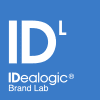What’s the most important element of any relationship?
Here’s a hint: it can’t be bought, forced, or demanded. It can take years to gain, but only seconds to lose.
Trust.
It’s the unshakeable belief in the reliability, credibility, and values of a person or organization. And, for brands, it’s what keeps your customers coming back time and time again. Because they know they can count on your products or services every time. That’s something that just can’t be faked.
So how can brands build that level of respect and trust with their audience?
Trust Signals
With so much of the customer experience happening online, the most successful brands, companies, and ecommerce sites have adopted the use of trust signals.
Trust signals are elements displayed on websites, points-of-sale, and elsewhere throughout the buyer experience journey designed to help customers feel more secure in their decision to purchase from the brand and platform. Think of them like the subtle nonverbal cues—smiles, eye contact, openness—that communicate trust between people.
Some of these trust signals are simple logos or other design elements that inform the customer that a site or retailer belongs to a trade organization. Some serve as proof of the company’s ethical conduct. But all them serve a single purpose: reassuring customers that they’re making the right choice by doing business with the company.
Types of Trust Signals
Some trust signals are loud, in-your-face, and instantly recognizable. Some are more subtly persuasive. Depending on the business, brand messaging, market, and a number of other factors, each brand could use one or multiple of the many different types of trust signals. Some of the most common are:
Guarantees
One of the most common types of trust signals, the guarantee has been used in marketing and advertising campaigns since the earliest days of the industry. These powerful and often expected, symbols offer peace of mind, and even a slight boost in self-esteem, hitting two important levels of Maslow’s hierarchy of needs.
Social Proof
Now that most of the world has gone digital, it’s easier than ever for prospective customers to verify the quality of a product or service. Testimonials, customer reviews, and other forms of social proof can mean the difference between prospects and buyers. These trust signals prove to potential buyers that other people—other humans—have had a positive experience with a product, service, or brand.
Association
Authentic associations and partnerships with other, more well-known or trusted brands is an excellent way to help prospects feel better about doing business with your company. Common with businesses small and large, regional and international, this type of trust signal works by piggybacking—with permission, of course—on the success and trustworthiness of other brands.
Why do they work so well?
The best trust signals work within the psychology of human behavior to confirm what the customers already believe. It’s called a cognitive bias, and it’s one of the most powerful unseen psychological forces influencing our decisions each day.
Particularly with big-ticket items, if we’ve already decided that we want something, we’ll look for anything to validate that decision. This zero-risk bias—think “Guaranteed,” “Verified,” or “Money-back”—is a powerful motivator and can often be the final push needed to convert a prospect into a customer.
Trust signals are a powerful way for companies of any industry to reassure prospective customers that they’re making the right choice in doing business with them. When properly and ethically utilized, they’re a force for good that helps companies grow and helps customers to get what they need. Of course, trust signals are tools like any other marketing technique. But the goal of a brand is to build relationships with customers beyond the transaction, and like any great relationship, it’s built on trust. It’s Brand to Human®.



